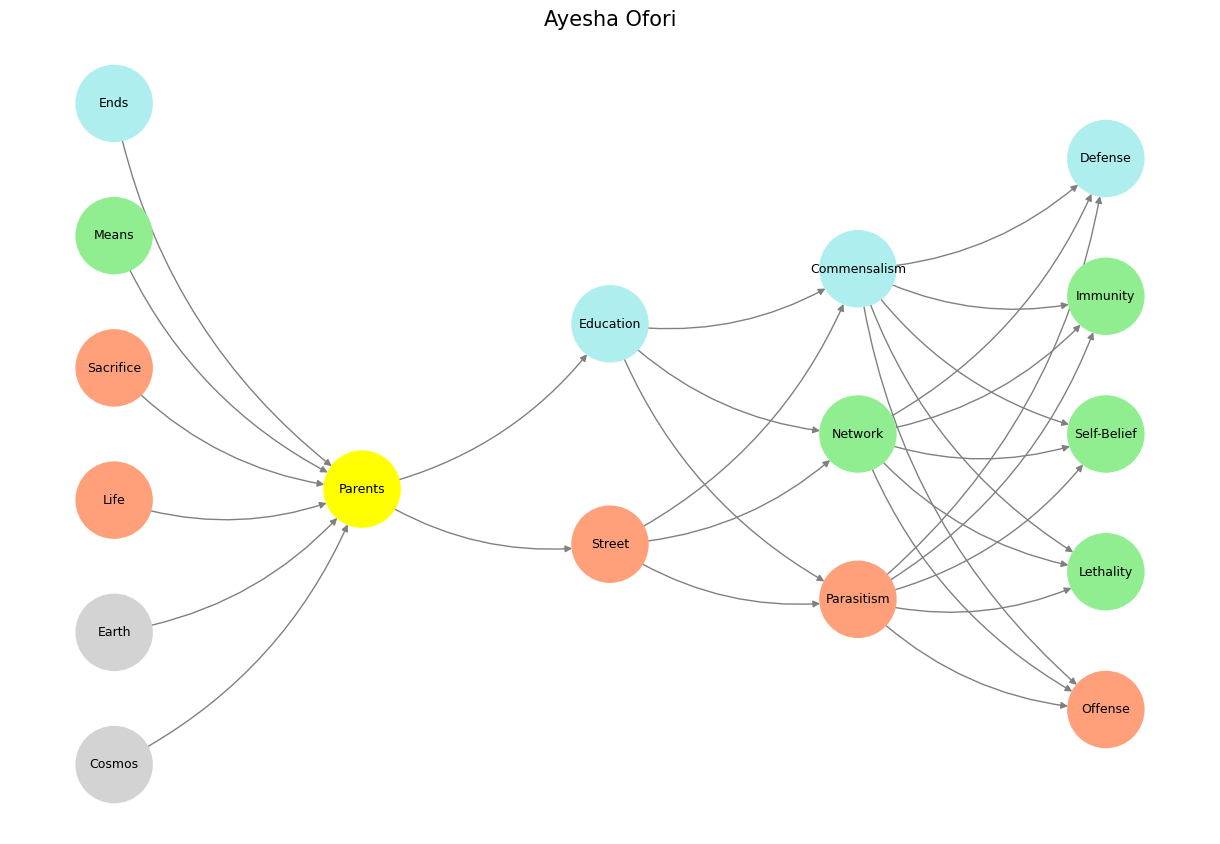Base#
A modern feminist’s performance on the metrics of Self (Posterity), Neighbor (Community), and God (Hungry, Prisoner, Unclothed) depends on the interpretation of feminist values and how they manifest in practice. Let me delve into each category while situating feminism in the framework of optimizing these dimensions.
Self (Posterity)#
Modern feminism excels at emphasizing the importance of autonomy, agency, and self-realization, which directly aligns with optimizing the “Self.” Feminism’s focus on dismantling gender norms and advocating for equitable access to education, healthcare, and career opportunities ensures that individuals—especially women—can fully develop their potential and contribute meaningfully to posterity.
However, feminism’s relationship with posterity is complex. Critics might argue that certain strands of modern feminism overly focus on individualism and career advancement, sometimes at the expense of family or long-term generational planning. On the other hand, feminists champion reproductive rights, which empower people to make choices about when and whether to have children—an undeniable boon to posterity when viewed as a conscious, rather than forced, investment in the future.
In this metric, feminism performs strongly in terms of agency and opportunity but can be critiqued if self-realization appears disconnected from collective continuity.
Neighbor (Community)#
Feminism’s role in building community is substantial. By advocating for inclusion, intersectionality, and the dismantling of oppressive hierarchies, modern feminists champion cooperative equilibria that bring diverse groups together. Feminist movements actively support marginalized communities, recognizing the intersection of gender with race, class, and ability, fostering a sense of belonging and mutual support.
A potential weakness lies in whether feminism’s focus on identity politics occasionally fragments community cohesion. Critics might argue that some feminist rhetoric, particularly when rooted in grievance politics, risks emphasizing divisions over shared goals. Nonetheless, feminism’s broader aims—such as workplace equality, parental leave policies, and combatting gender-based violence—serve to strengthen communities by addressing systemic imbalances that harm everyone, not just women.
On this metric, feminism’s focus on justice and inclusion helps foster strong communal bonds, though it must guard against internal divisiveness.
God (Hungry, Prisoner, Unclothed)#
Modern feminism’s dedication to social justice directly impacts this category. Feminist activism often overlaps with advocacy for the poor, the imprisoned, and the marginalized. For instance:
Fighting for wage equality addresses poverty.
Campaigns against human trafficking and for prison reform resonate with the prisoner’s plight.
Work on menstrual equity and reproductive health care speaks to the needs of the unclothed and vulnerable.
However, feminism’s alignment with secular humanism in some spheres may complicate its relationship with “God” as traditionally conceived. Feminists might emphasize human agency over divine intervention, challenging the notion that spiritual obedience is necessary to address the needs of the “hungry, prisoner, and unclothed.” This approach can be seen as both a strength (empowering humanity to take direct action) and a limitation (neglecting the transcendental aspects that bind people to higher ethical callings).
Overall, feminism is effective in addressing material concerns for the vulnerable, but its relationship to the divine might feel incomplete to those who see spiritual dimensions as integral to this metric.
Conclusion#
Modern feminism performs strongly across all three metrics, especially in terms of empowering individuals and advocating for systemic equity. Its alignment with posterity comes through choice and opportunity rather than traditional norms, its community focus is bolstered by inclusivity and justice, and its impact on the vulnerable is practical and substantial. That said, critiques regarding excessive individualism, identity politics, or secularism suggest areas where balance could be recalibrated.
Feminism is not a monolith, and its optimization across these metrics varies based on its interpretation—whether radical, liberal, or intersectional. Ultimately, it offers a compelling framework for societal progress, though it thrives best when its vision harmonizes individual self-actualization with communal and transcendental aspirations.
Show code cell source
import numpy as np
import matplotlib.pyplot as plt
import networkx as nx
# Define the neural network structure
def define_layers():
return {
'World': ['Cosmos', 'Earth', 'Life', 'Sacrifice', 'Means', 'Ends', ],
'Perception': ['Parents'],
'Agency': ['Street', 'Education'],
'Generativity': ['Parasitism', 'Network', 'Commensalism'],
'Physicality': ['Offense', 'Lethality', 'Self-Belief', 'Immunity', 'Defense']
}
# Assign colors to nodes
def assign_colors():
color_map = {
'yellow': ['Parents'],
'paleturquoise': ['Ends', 'Education', 'Commensalism', 'Defense'],
'lightgreen': ['Means', 'Network', 'Immunity', 'Self-Belief', 'Lethality'],
'lightsalmon': [
'Life', 'Sacrifice', 'Street',
'Parasitism', 'Offense'
],
}
return {node: color for color, nodes in color_map.items() for node in nodes}
# Calculate positions for nodes
def calculate_positions(layer, x_offset):
y_positions = np.linspace(-len(layer) / 2, len(layer) / 2, len(layer))
return [(x_offset, y) for y in y_positions]
# Create and visualize the neural network graph
def visualize_nn():
layers = define_layers()
colors = assign_colors()
G = nx.DiGraph()
pos = {}
node_colors = []
# Add nodes and assign positions
for i, (layer_name, nodes) in enumerate(layers.items()):
positions = calculate_positions(nodes, x_offset=i * 2)
for node, position in zip(nodes, positions):
G.add_node(node, layer=layer_name)
pos[node] = position
node_colors.append(colors.get(node, 'lightgray')) # Default color fallback
# Add edges (automated for consecutive layers)
layer_names = list(layers.keys())
for i in range(len(layer_names) - 1):
source_layer, target_layer = layer_names[i], layer_names[i + 1]
for source in layers[source_layer]:
for target in layers[target_layer]:
G.add_edge(source, target)
# Draw the graph
plt.figure(figsize=(12, 8))
nx.draw(
G, pos, with_labels=True, node_color=node_colors, edge_color='gray',
node_size=3000, font_size=9, connectionstyle="arc3,rad=0.2"
)
plt.title("Ayesha Ofori", fontsize=15)
plt.show()
# Run the visualization
visualize_nn()

#
Fig. 23 From a Pianist View. Left hand voices the mode and defines harmony. Right hand voice leads freely extend and alter modal landscapes. In R&B that typically manifests as 9ths, 11ths, 13ths. Passing chords and leading notes are often chromatic in the genre. Music is evocative because it transmits information that traverses through a primeval pattern-recognizing architecture that demands a classification of what you confront as the sort for feeding & breeding or fight & flight. It’s thus a very high-risk, high-error business if successful. We may engage in pattern recognition in literature too: concluding by inspection but erroneously that his silent companion was engaged in mental composition he reflected on the pleasures derived from literature of instruction rather than of amusement as he himself had applied to the works of William Shakespeare more than once for the solution of difficult problems in imaginary or real life. Source: Ulysses#

